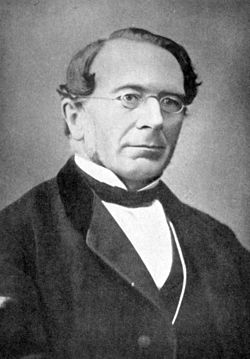Jurisprudence of concepts
This article may be confusing or unclear to readers. (March 2015) |

The jurisprudence of concepts was the first sub-school of legal positivism,<ref name="ARCOS">Costa, Alexandre Araújo. "A Jurisprudência dos Conceitos". Arcos. Archived from the original on 27 January 2021. Retrieved 17 December 2011.</ref><ref name="FDV">Pepino, Elsa Maria Lopes Ferreira; Graviorno, Gracimeri, Vieira Soeiro de Castro; Filgueira, Sofia Varejão. "A importância da Jurisprudência dos Conceitos para a Metodologia Jurídica" (PDF). Revista Depoimentos, da Faculdade de Direito de Vitória. Archived from the original (PDF) on 19 January 2012. Retrieved 17 December 2011.{{cite web}}: CS1 maint: multiple names: authors list (link)</ref> according to which, the written law must reflect concepts, when interpreted.<ref>that means that the interpretation of the words stated in the law must be guided by the scientific concepts that these words represent.</ref> Its main representatives were Ihering, Savigny and Puchta.
This school was, thus, the preceding trigger of the idea that law comes from a dogmatic source, imposition from man over man and not a natural consequence of other sciences or of metaphysical faith.
Among the main characters of the jurisprudence of concepts are:
- formalism, search of rights in written law
- systemisation
- search for justifying specific norm with basis from more generic ones.<ref name="RSA">Rocha, Sérgio André (2009). "Evolução Histórica da Teoria Hermenêutica - do Formalismo do Século XVIII ao Pós-Positivismo". Retrieved 25 January 2012.</ref>
So, according to this school, law should have prevailing sources based upon the legislative process, although needing to be proven by more inclusive ideas of a social sense.
See also
- Jurisprudence of values
- Jurisprudence of interests
- Philosophy of law
- Legal positivism
- Legal naturalism
- Hermeneutics
References